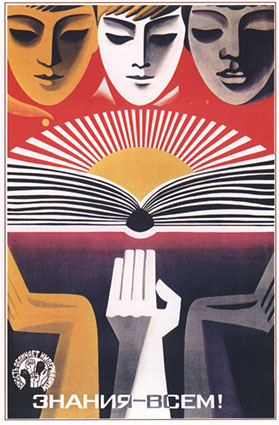Submissions

Please read the instructions below before submitting your manuscript. Then visit the journal’s Research Exchange portal to begin the submission process.
Note to Contributors
The journal welcomes individual submissions as well as proposals for interdisciplinary article clusters focused on a theme of current scholarly interest.
For article submissions, the target length is 9,000 words, including endnotes. Manuscripts should be in standard type, with one-inch margins, and with all text (including block quotes and endnotes) double-spaced. The journal follows a modified version of The Chicago Manual of Style, with all bibliographic information incorporated into the endnote apparatus. Unless a word falls within a quote or its spelling has entered English differently, authors should use the Library of Congress transliteration system. Authors should consult The Russian Review Style Guide alongside recent issues of the journal to familiarize themselves with how articles are formatted.
Submissions must come directly from the author and should be submitted through Wiley’s Research Exchange portal, along with an abstract of the article. To help the journal maintain its double-blind peer review process, authors should also indicate their institutional affiliation, if any. Submissions may contain embedded images, but images for accepted articles should be sent individually as high-resolution files. Authors are responsible for securing and paying for permissions if copyright is held by a third party. The journal’s online edition carries color images at no cost.
The Russian Review welcomes the submission of proposals for thematic clusters of up to four articles, by separate authors, organized around a common topic or theme. Thematic clusters may originate from conference panels, but the journal will not consider unrevised conference presentations—before submission, the papers must be developed into standard research articles, with a target length of 9,000 words each, including endnotes. Cluster proposals should be sent to the Editor by a designated coordinating author and should be accompanied by a list of contributing authors, the titles of the proposed articles, and abstracts of those articles (not the articles themselves). After discussion by the editorial collegium, the coordinating author will be informed of the journal’s decision on whether it wishes to proceed to formal consideration via its online submission portal, Research Exchange. It will be the responsibility of the coordinating author to ensure that the constituent articles have been prepared according to the journal’s style guide and that they are submitted in a timely fashion according to the schedule agreed with the journal. The coordinating author also will supervise preparation of revised submissions, should that stage be reached. Once all articles are formally submitted, the journal will correspond with the individual authors, but the coordinating author will supervise communication within the cluster group. Contributing authors should understand that each article will be assessed on its own merits by the collegium and external readers, and that the articles may be accepted or not in any combination; they also should understand that the journal will maintain editorial control and reserves the right to copy-edit and format each article according to the journal’s guidelines.
Submissions will be assigned to a member of the journal’s editorial collegium with relevant expertise, though in cases where an article crosses disciplinary boundaries multiple members of the editorial collegium will be asked to offer their evaluation. If deemed suitable for further review, the manuscript will be sent to at least two external referees who are authorities in the author’s field. Referee reports will guide and inform the assigned editor’s decision, but the editor will not necessarily be bound by the reports. If revisions are indicated, the editor will advise the author on what is required and supply the referees’ comments. The anonymity of both authors and referees will be maintained. If a submission is deemed inappropriate for the journal, the editor will seek to inform the author promptly, without involving external referees. Requests for stylistic changes, more precise evidence, and more carefully formulated judgments are a normal part of the editing process through exchanges between editor and author. Once a manuscript has been accepted, no changes will be undertaken without the author’s consent; authors will be required, however, to allow the managing editor to bring the article into conformity with the journal’s style guide.
Submissions to The Russian Review must not have been published previously in any language, nor be under consideration elsewhere; if accepted, they may not appear in any other format prior to publication in the journal. After an article has been published by the journal, The Russian Review permits republication of most materials under copyright. Requests should be sent to permissions@wiley.com.
Those interested in writing a book review or review essay for The Russian Review should first contact the journal by writing to rusrev@ku.edu. Reviews and review essays submitted without prior consultation will not be accepted. It is expected that the reviewer have no special association with the author of the work under review. Book reviews should be succinct, with a target length of 750 words for a single volume and 1,000 words for an edited volume. Occasionally, the journal will commission featured reviews, which highlight books of likely interest to a wide range of readers across disciplinary boundaries and among the general public. With a target length of 1,500 to 2,500 words, including endnotes, featured reviews are longer and should address readers beyond the confines of the author’s own area of specialization. Review essays survey multiple publications and offer a view of the state of the field as well as a review of the specific works in question. Review essays have a target length of 3,000 to 5,000 words, including endnotes.
The Russian Review publishes signed letters to the editor written in response to recent publications. The author of the publication will also be offered an opportunity to respond. Letters and responses should each be no more than 500 words in length. The editor reserves the right to refuse to print letters that fail to meet the standards of scholarly debate.